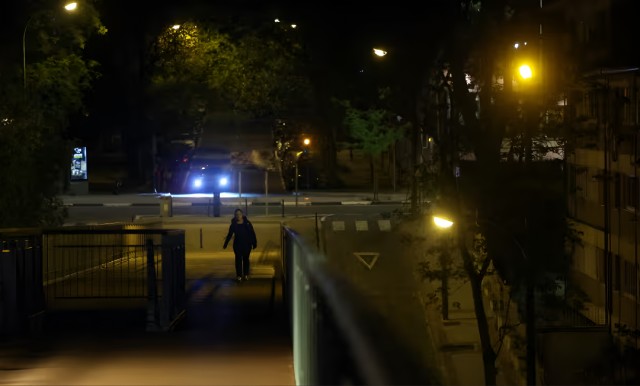
By Monday evening, most roads across Spain had emptied, with very few vehicles in sight. Getty Images
Spain’s Prime Minister Pedro Sánchez said late Monday night that everything is being done to restore power across the country. He shared that half of Spain’s electricity supply had already come back within a few hours.
The massive blackout hit both Spain and Portugal. It left millions without trains, metros, traffic lights, ATMs, phone service, and internet.
People got stuck in elevators, on trains, and in airport terminals. Many walked in dark metro tunnels, using their phone lights to find their way. Supermarkets could only accept cash, and many had to walk long distances to get home.
The power failure began at 12:33 p.m. local time. Hospitals had to delay non-urgent surgeries but used generators for emergencies. Electronic banking stayed alive with backup systems, though many ATMs showed blank screens.
Train and metro services stopped. Flights faced major delays. Traffic lights went dark, leading to traffic jams. Hundreds of people needed rescue from jammed elevators.
Madrid’s mayor asked people to stay where they were to help emergency teams move around easily. Play at a major tennis tournament in Madrid got suspended too.
Sánchez said it was still too early to know what caused the outage. Officials are looking into all possible reasons. He stressed that careful steps are being taken to avoid more problems.
By 10 p.m., about 62% of Spain’s electricity substations were back online. Around 43% of the country’s power demand was being met. Portugal also reported that power returned to most of its substations.
Officials said full power could take between six and ten hours to come back.
In some areas, like Madrid’s Argüelles neighborhood, the return of power brought cheers and applause.
Sánchez explained that the blackout started when, in just five seconds, 15 gigawatts of energy vanished—about 60% of Spain’s electricity at that time. No one knows yet why this happened, but experts are working hard to find out.
Portugal’s electricity operator said the blackout was caused by a rare weather event. Extreme temperature changes caused strange movements in high-voltage lines. This led to failures across the European power grid.
Sánchez thanked France and Morocco for sending extra electricity to help. Spain also used gas and hydroelectric power to cover the shortage.
Police and national guard forces increased their presence to maintain order. Hospitals kept running smoothly thanks to hard work by healthcare workers.
Telecom services remained shaky because many antennas lost power. Most flights continued as planned, though 344 flights were canceled. Roads worked well, except for a few traffic jams.
The biggest travel problem happened with trains. Around 35,000 passengers were stuck on over 100 trains. Rail companies and the military helped them. Eleven trains in remote areas were still waiting for help.
Traffic lights went out in major cities, causing heavy traffic. The national road authority asked drivers to avoid the roads.
Photos showed passengers walking in dark metro tunnels and police directing traffic by flashlight.
Portugal’s capital Lisbon also suffered. ATMs and payment systems stopped working, causing people to rush to buy bottled water, gas lamps, and radios.
Eight regions in Spain declared emergencies. Schools opened on Tuesday but skipped regular classes.
Some areas had 90% of their power restored, while others had less than 15%.
Sánchez advised people to work from home if possible.
"It’s going to be a long night," he said, "but we’ll keep working to bring everything back to normal."















